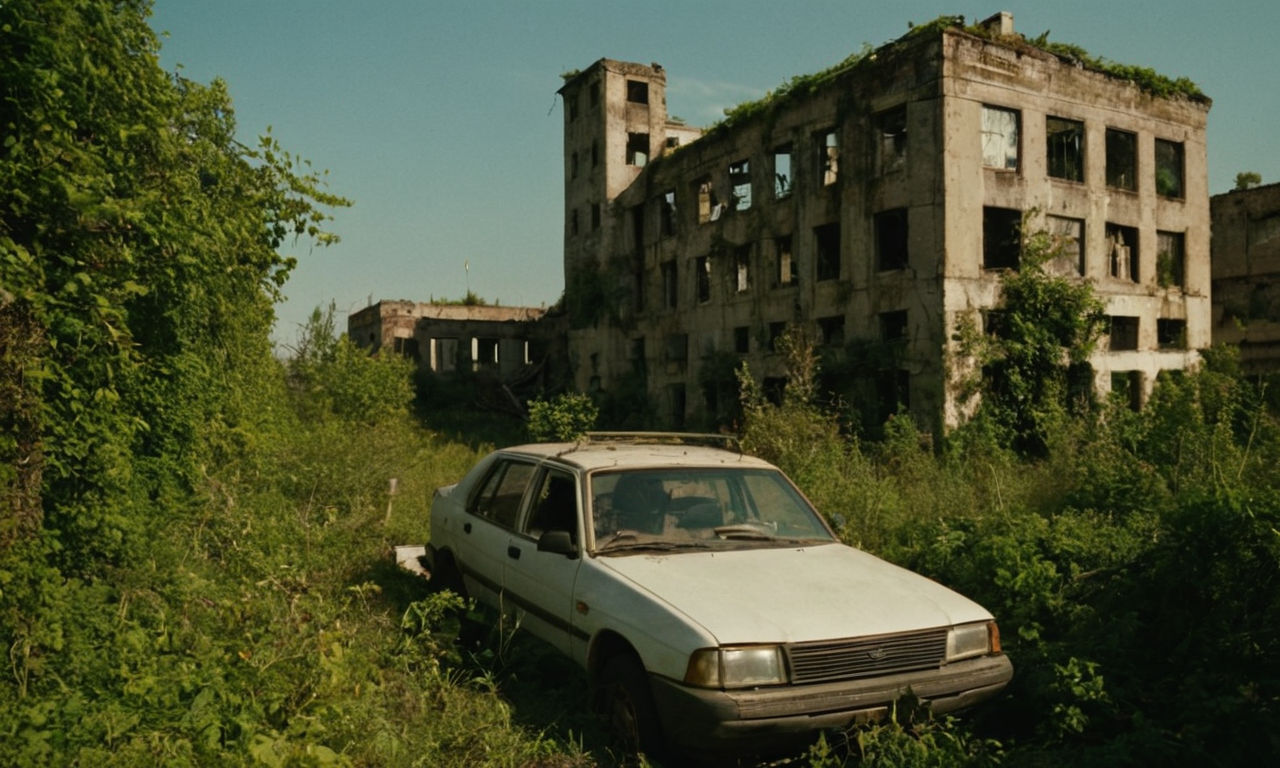Introduction
The Last of Us has long been hailed as a pinnacle of storytelling in the video game industry. However, as with any work of art, opinions are varied, and not everyone agrees on its brilliance. In this micro-rant, we will dive into the polarizing debate surrounding The Last of Us, challenging its status as a universally acclaimed masterpiece.
Understanding The Last of Us
The Last of Us is a post-apocalyptic action-adventure game developed by Naughty Dog. Set in a world ravaged by a fungal infection turning humans into hostile creatures, the game follows the journey of Joel, a hardened survivor, and Ellie, a young girl with immunity to the infection. As they traverse a desolate America, players are immersed in a narrative that explores themes of loss, survival, and the depths of human nature.
The gameplay mechanics of The Last of Us blend stealth, combat, and puzzle-solving elements to create a challenging and immersive experience. Players must navigate through dangerous environments, scavenge for resources, and engage in tense encounters with both infected beings and hostile survivors. The game's emphasis on resource management and character development adds depth to the overall gameplay, contributing to its reputation as a standout title in the gaming landscape.
The Last of Us: A Critical Examination
While The Last of Us has garnered widespread critical acclaim, there exist diverging opinions on its merits. Some players and critics cite the game's slow pacing and somber tone as detractors, finding the experience more melancholic than engaging. The emphasis on narrative-driven gameplay, while a defining feature of the game, has also been a point of contention for those seeking more frenetic action.
Critics of The Last of Us often point to its linear structure and scripted sequences as limiting factors that hinder player agency and replay value. The game's narrative, while emotionally impactful for many, has been criticized for predictable plot elements and character decisions that some find clichéd or overly melodramatic.

In contrast, supporters of The Last of Us highlight its nuanced character development, evocative storytelling, and thematic richness as reasons for its acclaim. The game's ability to evoke genuine emotion and provoke introspection in players is seen as a testament to its narrative depth and quality.
Ultimately, the debate over The Last of Us persists, with some championing its status as a gaming masterpiece, while others question its place among the greatest titles in video game history. As opinions continue to vary, the legacy of The Last of Us as a polarizing and thought-provoking work of art endures, inviting ongoing discussion and reflection on its impact within the gaming community.
The Last of Us Critique
When it comes to discussing the topic of The Last of Us and delving into why some individuals may find it lacking in excitement, it is crucial to analyze specific aspects that have drawn criticism from both critics and players alike. One of the primary critiques often levied against the game is its pacing. While some players appreciate the slow, deliberate storytelling that allows for deep emotional connections, others argue that it can feel drawn out and tedious, especially during certain segments of the game.
Another point of contention is the gameplay mechanics. Some players find the combat system to be clunky and repetitive, detracting from the overall immersive experience that the game aims to deliver. Additionally, the game's focus on stealth elements may not resonate with all players, leading to frustration and disengagement for those who prefer more action-oriented gameplay.
Furthermore, the character development in The Last of Us has been a subject of debate. While many applaud the nuanced and complex characters like Joel and Ellie, others feel that certain character arcs lack depth or fail to resonate emotionally. This discrepancy in character perception can significantly impact how players connect with the narrative and the overall impact of the story.
In essence, by critically examining these specific aspects such as pacing, gameplay mechanics, and character development, it becomes evident why some critics and players may find The Last of Us lacking in certain areas and not living up to its widespread acclaim.
Debunking Overrating Issues

Addressing the concept of overrating in the gaming community is essential to understanding the perception surrounding The Last of Us. The term "overrated" is subjective and can be influenced by various factors such as hype, personal preferences, and expectations. In the case of The Last of Us, its immense popularity and critical acclaim have inevitably led to heightened expectations among players and critics alike.
One factor contributing to the perception of overrating is the sheer volume of praise heaped upon the game. When a title receives near-universal acclaim and is lauded as a masterpiece, it sets a high bar for others to experience it. This can create a sense of disappointment for individuals whose expectations were sky-high based on the overwhelming positive reception.
Moreover, the concept of overrating also stems from individual preferences. What one player may find groundbreaking and exceptional, another may view as mediocre or unremarkable. The subjective nature of entertainment media like video games means that opinions will always vary, leading to divergent views on the quality and merit of a particular title.
Ultimately, debunking overrating issues surrounding The Last of Us involves acknowledging the interplay of hype, expectations, and personal preferences that shape perceptions of the game within the gaming community.
Controversial Game Opinions
Exploring varying opinions on The Last of Us is crucial in understanding why there is such diversity in how the game is perceived. The contentious nature of the game stems from its bold storytelling choices, morally complex characters, and emotionally charged narrative. These elements elicit strong reactions from players and critics alike, sparking debates and discussions about the game's merits and shortcomings.
One of the reasons behind the diversity of opinions on The Last of Us is its divisive ending. Without delving into spoilers, the conclusion of the game leaves room for interpretation and provokes intense reactions from players who either appreciate its ambiguity or find it unsatisfying. This polarizing aspect of the game contributes to the wide spectrum of opinions that exist within the gaming community.
Furthermore, discussions surrounding the game's themes of survival, loss, and sacrifice can also lead to varying perspectives among players. Some individuals may resonate deeply with the emotional weight of the story, while others may find it heavy-handed or clichéd. These differing interpretations and reactions contribute to the controversial nature of The Last of Us and why it continues to be a topic of debate among gamers.

In conclusion, the exploration of controversial game opinions surrounding The Last of Us highlights the diversity of perspectives within the gaming community, showcasing how a single title can evoke a wide range of emotions and reactions from players and critics.
Unveiling Truths
The Last of Us, often hailed as a masterpiece in the gaming industry, has garnered its fair share of criticism over the years. However, delving deeper beyond the surface-level critiques reveals a game that possesses unique qualities that set it apart from the crowd.
The Last of Us Critique
One common thread in the critique of The Last of Us is its pacing, with some players finding the gameplay slow and methodical. While this may not cater to those seeking a fast-paced action experience, the deliberate pacing serves a crucial purpose in building tension and emotional depth within the narrative. By forcing players to slow down and immerse themselves in the world, The Last of Us cultivates a sense of vulnerability and urgency that is essential to the story it aims to tell.
Game Overrating Issues
The Last of Us often faces criticism for its perceived lack of innovation in gameplay mechanics. However, focusing solely on this aspect overlooks the game's groundbreaking storytelling and character development. The strength of The Last of Us lies not in its gameplay innovations but in its ability to craft a compelling narrative that resonates with players on a profound emotional level.
Controversial Game Opinions
Some players argue that The Last of Us is overrated due to its linear gameplay and lack of player choice. While it's true that the game follows a linear path, this design choice allows for a tightly woven narrative that unfolds with precision and impact. The lack of player choice reinforces the theme of powerlessness and moral ambiguity, enhancing the overall storytelling experience.
Conclusion
In conclusion, while The Last of Us may not cater to every gaming preference, its reputation as an overrated title deserves a second look. By embracing its unique storytelling approach, deliberate pacing, and thematic depth, The Last of Us emerges as a game that transcends traditional gaming conventions to deliver a narrative experience that resonates long after the credits roll. It challenges players to confront moral dilemmas, engage with complex characters, and explore the shades of gray in a post-apocalyptic world. Before passing judgment on the game's acclaim, it's essential to appreciate the nuances that make The Last of Us a standout in the gaming landscape.



